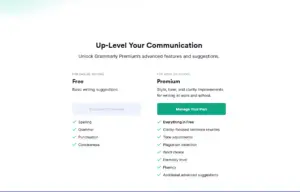Do you know the difference between speach vs speech? Maybe you think one of these words is right, and the other is completely wrong. Do you know if you should give a Speach or speech? Yeah, it is getting a bit confusing. This is why we’re going to discuss a few English grammar and Spelling errors that are very common these days and how to avoid them.
Yes, there is a simple way of avoiding any Speach or speech spelling mistakes in the future, and that solution is called Grammarly. However, until we arrive at this tool, let’s shed some light on how to spell speech correctly.

Speach or speech difference
Speech is the correct spelling of the act of vocalizing communication, the ability to speak. So, why do we make Speach or speech spelling errors so often? One explanation would be that the verb form of speech is “speak”, and that is why it might sound logical to wonder which is correct speech or Speach.
However, “speech” is undeniably the correct form in this day and age. Nevertheless, “Speach” is an old form of the verb, and that is also reason number 2 why some people use it like that.
This is no simple distinction here; it is pretty important to what is speech with examples because speeches have shaped the fate of humanity ever since the world invented writing and art. A speech is founded on the basis of syntax and a combination of items extracted from the wide lexicon. We’ve developed these tools that help us speak over thousands of years. It was not an easy process. Yeah, probably not even the question “when to use speech and speech?” is not easy. But we’re getting there, right?
The magic of the spoken word
Ok, so let’s take a break and wonder at the miracle that the spoken word is and how it has worked its magic on humanity since times immemorial.
Each word that we speak is an intricate phonetic mixture of vowels and consonants. These sound units differ and thus create thousands of diverse human languages. We are enabled with some pretty impressive vocal abilities that allow us to produce this diversity of words almost effortlessly. We have even made an art of it – singing, telling stories, and speeches.
So, which speech is your favorite?
Yes, I wanted to arrive at speeches and the art of public speaking. Some famous speeches have shaped the world as we know it, and we should take a moment to honor them.
- I Have a Dream – Martin Luther King (1963)
We hold these truths to be self-evident: that all men are created equal”
- Fight on the Beaches – Winston Churchill (1940)
“We shall fight on the beaches, on the landing grounds, in the fields and in the streets, we shall fight in the hills; we shall never surrender”
- Abraham Lincoln’s Gettysburg Address (1863)
Government of the people, by the people, for the people, shall not perish from the Earth”
- Freedom or Death – Emmeline Pankhurst (1913)
You have left it to women in your land, the men of all civilised countries have left it to women, to work out their own salvation. That is the way in which we women of England are doing”
- I am The First Accused – Nelson Mandela (1964)
I have cherished the ideal of a democratic and free society in which all persons live together in harmony and with equal opportunities. It is an ideal I hope to live for and to achieve. But if need be, it is an ideal for which I am prepared to die”
All these speeches have shaped our world and society, and each of them has left some food for thought for all of us years later. In fact, speech is much more important than just our day-to-day conversations and the inspirational discourses of personalities. We also use speech internally as a mental process. We talk to ourselves at all times, trying to organize our cognition into manageable bits that we call thoughts. So, interior monologues are part of how we think and feel.
What is the difference between speech and public speaking?
The difference between speech and public speaking is like the difference between a process and a method. Public speaking is a process that involves organizing a structured event with a certain type of topic that people attend deliberately. At this event, we use the method of speech to deliver our message to a live audience.
Public speaking skills are crucial for any leader or ruler who wants to persuade an audience and deliver a compelling message. Public speaking is also a great way to train your emotions, and develop your self-esteem. You can also meet new people at these events, socialize, and create a network of possible business associates. If you set out to change the world, public speaking is one valuable asset that you need to have in your bag. It is an effective process that will help spread your message and revolutionary ideas.
However, some people have a public speaking phobia. Overcoming this setback is important for everyone’s personal development.
So, what free speech really means?
Now that we know how to say speech correctly, maybe it’s time to take a small detour. Actually, you can say “free speech or free speech” all you want, as long as you respect the freedom of speech of every individual. Let’s not forget that this is also the first amendment of the US Constitution, and according to it, the freedom of speech includes the following:
- the right not to speak
- students can express their constitutional rights at school
- people can use certain words or phrases to convey their political messages
- they can pay money for political campaigns if they feel like it
- people can advertise their commercial products or professional services
- the freedom to engage in symbolic speech
Freedom of speech does not include:
- inciting actions that could result in hurting others
- making or distributing obscene materials
- defamation
- threats
- child pornography
So, freedom of speech is a serious matter that should not be taken lightly. It has raised many controversies over the years, and each organization, constitution, and country try to define it as well as they can. Ironically, sometimes speech is not enough to define freedom of speech.
Solving the Dilemma
Anyways, let’s get back to how to spell speech or speech (yeah, there might be a typo or two in there), and finally agree on the dilemma: “Is it Speach or speech?”
The correct spelling is “speech”. Speach is an incorrect spelling; the main cause is probably the way we spell the verb “speak”. Nevertheless, the noun is written with two “e”, which you should keep in mind.
“Speeches” is also another type of incorrect spelling. So is “speche” or speeh”. In the case of speeches or speeche’s, the plural is speeches, and it should stay that way. The tool that turns text into audio is called a text-to-speech engine.
Grammarly and you’ll never “Speach or speech” again
We also promised a solution to almost every common spelling and grammar mistake in the book, and that solution is called Grammarly.

Grammarly is a great automatic proofreader that can do a little more than just that. It senses every typo that might creep into your perfect righting and red flags it. Moreover, it helps improve your English wording, grammar, and fluency.
Over 20 million people are using Grammarly daily, which makes it the most popular spelling checker out there. Speach or speech will not stand a chance!
So, Grammarly integrates with your text editors, such as Microsoft Word, e-mails, browsers, and even WordPress, or social media platforms. It checks all the text you write in these text editors and flags the errors. Then you can click on these flagged errors and get them corrected automatically.
The free version covers the basics of the English language – spelling, grammar, and punctuation. A premium Grammarly account will also give you fluency suggestions, and provide best-writing practices and stylistic recommendations. Sometimes, these can make all the difference between a messy English text and a professional, well-written message.
The four main Grammarly features
1. Grammar and punctuation
Grammarly will spot all the grammar and punctuation issues in your text. It could be comma splices, fragments, alliteration, etc. More than that, it will provide you with explanations for these problems, so that you can avoid them yourself in the future.
2. Spelling
No word goes unchecked by Grammarly. If you write “Speach or speech”, Grammarly will know and flag the wrong word. This feature is better than Microsoft Word or Google Docs spell checkers. It never fails, and never leaves a typo undiscovered.
3. Plagiarism
The plagiarism checker examines your whole documents and flags any intentional or unintentional plagiarism cases. It is important to check any text of plagiarism before you publish it online.
4. Writing style and wording
This is where Grammarly will give you tips on how to sound more natural, how to avoid long and wordy sentences, etc. It can also read your writing style and offer readability tips to ensure that a large audience can understand your text.
Grammarly can help you with your thesis writing, content writing, and hobby writing. You can create a style guide and update it according to how you want your text to sound. It is super cool.
Why do you need the Grammar “police” by your side?
Yeah, you could call Grammarly a friendly Grammar policeman that warns immediately after you take a step wrong so that you can correct it in time.
And Grammar is important, even with all the emojis and short-form content that is trending nowadays. You shouldn’t underestimate the dark side of the Grammar nazis that are everywhere waiting for you to make a mistake.
Moreover, your writing style represents you. It is like your business card. Besides, the better your grammar, the more concise and clear is your message, and the easier it will be for your readers to get your meaning.
So, Grammarly will surely help with the quality of your writing; there’s no denying that. From our experience, it never misses a typo. The advanced suggestions might require your attention, it’s true. Grammarly is still working on making these suggestions as accurate as possible, but there were times when Grammarly just didn’t get it right in terms of nuances. Nevertheless, it’s fine. You can start with the basic free version like we did, and then you can upgrade when you feel prepared.
We were beginning to discuss the cons of Grammarly, but let’s stop here and start again with the pros.
Grammarly pros
-
Simple and easy to use
Grammarly is one simple app that even your grandma can use. It is very intuitive, and you will absolutely love it. It molds into how you write and work and can help you in a million ways:
- as a browser, extension to check everything you write in the browser – on your social media platforms, WordPress, Google Docs, e-mails, etc.
- as a Microsoft Office extension – to check everything you write in Microsoft Word, E-mails, etc.
- it can also be downloaded as a desktop app
- you can have it on your mobile as well, though we haven’t tried the mobile version yet
So, you can use Grammarly however and wherever you want or need it. Those blessed red corrective lines will pop up naturally on all of your devices, and you can rest assured your grammar is on point.
-
It sometimes goes that extra mile
This is one thing that you’ll absolutely love about Grammarly. It provides you with writing suggestions that you’ve never thought about. It always looks like it’s got one more ace up its sleeve, and another one… and another one. It’s super cool.
So, yeah, Grammarly is not just a grammar checker; it’s your writing assistant. According to Wikipedia, it was first launched in 2009 by Alex Shevchenko, Max Lytvyn, and Dmytro Lider. The app is now run by the company Grammarly, Inc., headquartered in San Francisco. In October 2019, the company was evaluated at about $1 billion.
-
It can also act as a teacher telling you what and why is wrong
Grammarly doesn’t just correct your occasional typos and errors. It also tells you why it was wrong in the first place. So, after a while of using Grammarly, you will also learn a little bit of English grammar, and you will not make those mistakes in the future.
So, for example, Grammarly will tell you:
- when a certain word is not in the dictionary
- if you need to rewrite a sentence for clarity
- how to reduce wordiness and make your message more concise and clear
- when you should check your tone because it’s not confident enough
- how to keep your writing style consistent
- when you’ve overused a word, so you need to find synonyms
- remove word redundancy
- when you’ve got a sentence fragment
- if your pronouns are incorrect or ambiguous
That’s a lengthy list, yes, and Grammarly helps you remove all these shortcomings from your writing.
Grammarly cons
Well, there is one con, and that is their readability suggestions. Sometimes, they get it wrong. The software is work-in-progress, and we understand that, but it’s annoying that you have to check and see if Grammarly’s every blue underlined suggestion makes sense. Sometimes, they don’t.
For example, the tool flags passive voice, and it flags it incessantly. I would have loved to have a counter that lets me know how much passive voice I’ve used in the text. Sometimes, you just can’t avoid passive voice.
The Grammarly vocabulary suggestions are limited. It’s like the tool has fallen in love with a few words, and they suggest them over and over again. Other times, the words they suggest are simply not synonyms in that context. So, yes, they suggest synonyms without context, and that’s not nice at all.
The split infinitive suggestions are annoying. Yes, we know that most grammar experts shy away from split infinitives, but there’s nothing with them. Moreover, in some instances, using a split infinitive makes the sentence much clearer.
E.g. “They’ve decided to evaluate each employee’s performance carefully” / “They’ve decided to carefully evaluate each employee’s performance.”
Which one do you pick from here?
Other than this, Grammarly is superb and very helpful, both in the free and paid version.
How do you customize Speach or speech in Grammarly?
So, assuming you have to write an article like this one, where you want to include an incorrect word specifically. If you use Grammarly, it will be frustrating because the software will always correct it or flag it for correction. Nevertheless, what you can do is customize your preferences from your Grammarly Account Settings.
This is like your central control dashboard, where you can select what you mostly write for (School, Work, Other) and also what types of e-mails you want to receive from Grammarly. Moreover, in the “Customize” center, you have a Personal Dictionary. Here you can add words that you don’t want to be flagged as misspellings. This is really important if you have a company name that the software usually flags as wrong or if you want to use deliberately misspelled words like in this article.
In the Customize menu, you also have the Language Settings. Here you can select your primary language. You have a dropped-down menu of over 20 languages from Xiang Chinese to Zulu or Swedish. They say that this will help offer tailored support for your English writing, depending on your primary language. They do not give more details, but it’s interesting.
Moreover, from the Customize menu, you can also change the English accent – British English, American English, Canadian English, or Australian English. You also have the possibility to select fluency assistance or not.
Another interesting Customization menu is the Optional Suggestion category. Here, you will find a list of all the suggestions Grammarly offers, from flagging passive voice to split infinitives, sentence variety, readability, etc. There are about 24 optional suggestions that the tool can help you with. Nevertheless, you can turn them on or off depending on your writing needs.
Grammarly premium vs Grammarly free
Ok, now the debate of whether you should get Grammarly Premium or stick to using the free version. The Grammarly paid plan costs $30/month if you want to pay monthly. It costs $20/per month if you want to be billed quarterly, or $12/per month if you want to pay once per year.

Now, the basic free option will only provide you with spelling, grammar, punctuation, and conciseness suggestions. The Premium offers a couple more features:
- clarity rewrites
- adjustment suggestions for the tone of voice
- plagiarism detection
- word choices
- formality tone
- fluency suggestions
- more additional advanced suggestions
So, the question is – do you need the pro version? If you just want a writing assistant that will tell you which is correct, Speach or speech, then, no, you don’t need the Grammarly Premium.
However, if you want more from your writing, if you want an assistant that will tell you if your writing is too formal or informal, then you need the Premium Version. What is more, in the Premium version, you can also set the type of writing you’re doing:
- creative
- business
- casual
- academic
You can also select the intent of your text:
- inform
- describe
- convince
- tell a story
So, yeah, the Premium Version of Grammarly, while not perfect, is closer to a writing assistant. The free version is merely helping you avoid typos and punctuation errors. Nevertheless, if you feel your English grammar is excellent and only need to avoid the occasional typo, then go for the free version.

New with Grammarly – the style guide feature
This is a relatively new Grammarly feature that they are rolling out as part of their workspace (BETA) offering for companies. Inside this style guide, you can basically personalize a brand book for your company by creating certain rules.
For example, you can create a rule where your company name is always capitalized properly. If your company is called something like DesignYouTrust, then you want those three capital letters in there in every written material. You can thus ask Grammarly to do that for you in case you or one of your employees misspell the company name.
Another rule example is the preferred company terms. If your company wants to call all the employees’ team members, you can create this rule, and Grammarly will flag any “employee” word found in your written materials.
You can also create a rule with different types of jargon that you want to avoid or with terms that you know your customers don’t love. It’s a really cool feature that lets you personalize your writing to fit your company profile, brand, and image.
Conclusion
Grammarly is a very cool tool that you can use for free to correct any Speach or speech type of errors. It can also become your automatic writing assistant that can support your writing style and brand voice. So, if you’re creating content on a daily or weekly basis, you need this tool.
It will save you time and also make you feel safer with your writing.


